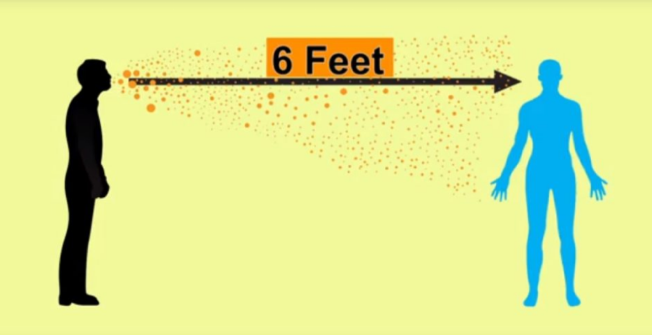Social Distancing
April 3, 2020
While the world is reeling from the extreme coronavirus outbreak, the government and scientists are trying their best to slow the spread of the virus. The number one way the government says to slow the virus, is through social distancing. Keeping away from large groups of people or staying at home until scientists find a cure or way to vaccinate against the virus. Social distancing only works however, if people take part in it. During St. Patrick’s Day and spring break, many individuals wanted to go out and have fun, which if the world wasn’t in a crisis this would be fine. However, this virus spreads quickly, and even though you might not show symptoms you could still spread it to someone who’s at risk.
The governor of Kentucky has even been forced to have police officers guard an infected individual who refused to self-isolate. Many people are downplaying the severity of the situation, which can prove deadly to people who have pre-existing conditions. But to people who aren’t at risk and are forced to stay at home, there are also great challenges. For example, many of those who are social distancing have become bored or are running out of necessities in their homes. The government has yet to put on a full lockdown, so if those at home need to get something from a store, they are welcome to do so. Many are also taking notice of the fact that social distancing can be damaging to those with mental illnesses, such as anxiety and depression.
People with anxiety disorder can become overly worried, panicked, or stressed in a situation where they aren’t able to have contact with other people. People with depression have also been known to have their depression triggered by stress or loneliness, which can make self-isolation scary or even deadly in some cases. Depression can develop into suicidal thoughts or actions which can be an added stress to our current situation. Scientific studies have shown that in times when people are isolated, such as prison or other extreme punishments, the human brain changes. Humans are social animals, so they need emotional support and social interaction.
However, even with these seemingly devastating issues from social distancing, it’s humanity’s best option to slow the spread of the virus currently. For now, most of this crisis seems mostly temporary, and until a vaccine is created, the population has to be careful.


